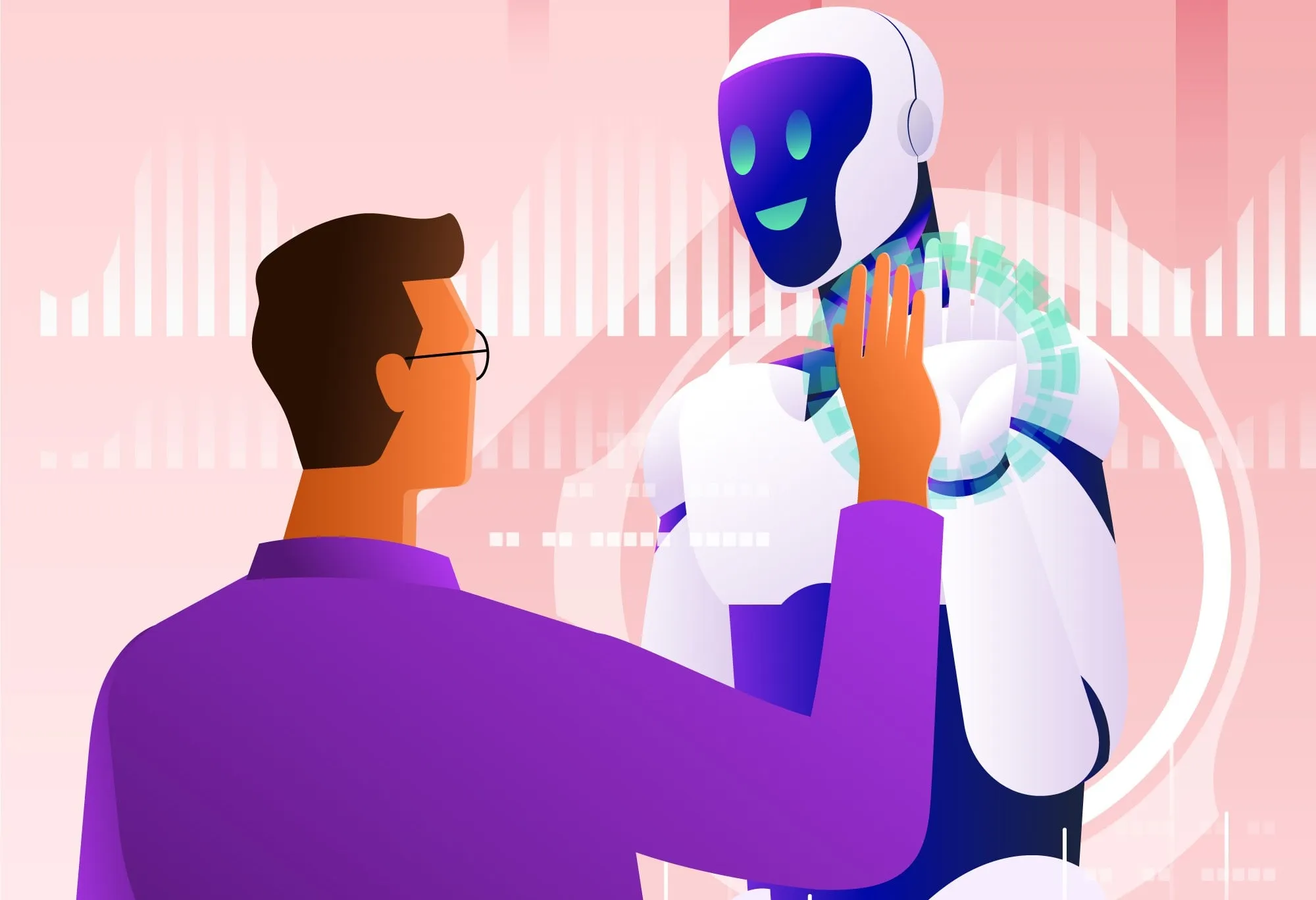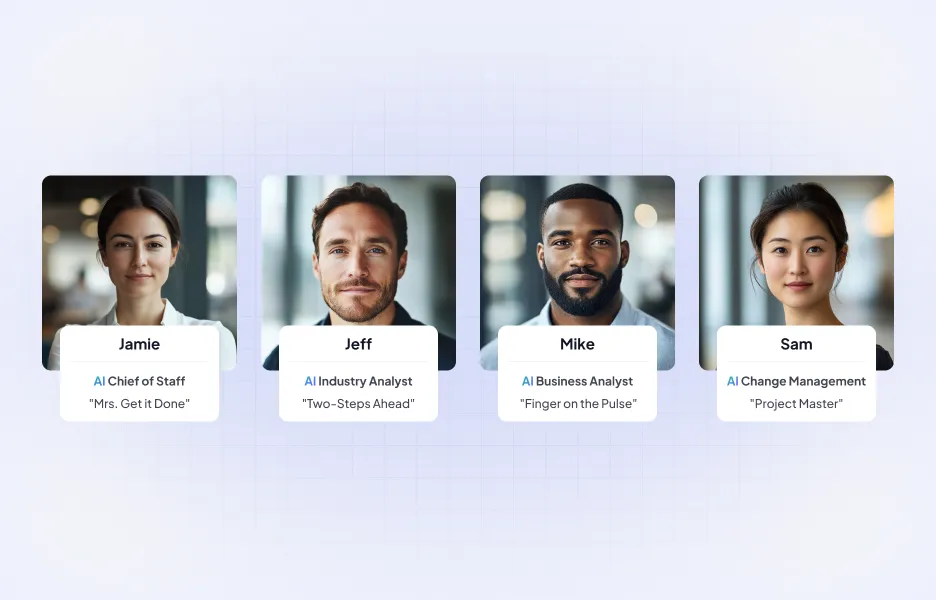AI Agent for Small Business: What to Consider in 2025

Running a small or medium-sized business (SMB) is no easy task. And when you’re operating lean, there’s no room for wasted time or missed opportunities. Every task, email, and customer conversation matters.
The good news? The right tools (aka an AI agent) can make all the difference.
Picture having a digital sidekick that helps keep you organized, improves your customer service, and takes the stress out of day-to-day operations. Sounds great, right?
Well, you’re not alone. Over 58% of SMBs are already using AI to work smarter and not harder.
Today, we'll explore what an AI agent for small businesses actually is, what benefits it offers, and what to consider before adding one to your team.
What Is an AI Agent for Small Business?
An AI agent is a digital assistant powered by artificial intelligence that helps you run your business more efficiently. It autonomously performs tasks, makes decisions, and interacts with humans or systems – all without constant human oversight!
Behind the scenes, AI agents use technologies like natural language processing (NLP), machine learning, and predictive analytics to keep your operations running smoothly.
Unlike simple bots or rule-based automations, AI agents are built to think (almost) like a human teammate:
- Context-aware: They understand what a customer is really asking, even if it’s phrased in different ways.
- Goal-oriented: They don’t just follow scripts; they take action to achieve specific outcomes.
- Adaptive: They learn and improve over time using real-time data and feedback.

That means they can help you with customer conversations, scheduling appointments, following up with leads, and so much more. Your team can finally focus on the big picture, while your digital sidekick takes care of the busywork.
Benefits of AI Agent for Small Businesses
2025 is shaping up to be the year of doing more with less.
For SMBs, that means finding ways to serve more customers, close more deals, and stay ahead of the competition without burning out your team or breaking the bank.
On the bright side, all that is achievable with a good AI agent by your side. Here are the key advantages of AI agents for small or medium-sized businesses:
Saves time
Still spending hours replying to the same questions or juggling calendars? That’s valuable time you’re not getting back.
AI agents handle repetitive tasks like answering FAQs, scheduling appointments, and sending follow-ups - instantly and accurately.
That means fewer distractions and more space in your day to focus on growing your business (or finally taking a real lunch break).
Reduces operational costs
Hiring extra hands to manage admin work gets expensive fast. An AI agent does the job of multiple team members, without adding to your payroll.
You get round-the-clock support, minus the overhead.
And the money you save? You can reinvest it into the areas that matter most, like marketing, product development, sales teams, or employee satisfaction programs.
Improved customer satisfaction
Today’s customers expect fast, personal responses day or night. That’s a lot of pressure when you’re a small or medium business.
Thank goodness your AI agent makes your business available 24/7. It gives customers the instant answers they’re looking for, while keeping interactions personalized and helpful.
No hold music. No, “we’ll get back to you in 2–3 business days.” Just fast, friendly support at scale that boosts your customer satisfaction.
Increases productivity
When your team isn’t bogged down by repetitive tasks, they can actually get stuff done and let their creativity flow.
AI agents are redefining executive productivity and give your people more headspace to focus on high-impact work: closing deals, building relationships, launching new ideas.
Plus, AI can work 24/7 without getting tired. This means you won’t miss any opportunities, even when you’re off the clock!
Scales effortlessly
More customers shouldn’t mean more chaos. On the bright side, an AI agent lets you scale your operations without hiring a small army.
AI adapts and grows with you. So, whether you're handling 5 or 500 chats a day, your agent learns to keep up: managing conversations, qualifying leads, and routing requests like a pro.
Provides actionable insights
You don’t need a full data team to make smarter decisions. Your AI agent turns everyday business data into clear, actionable insights, without getting overwhelmed.
For example, Journey AI automatically flags issues, bottlenecks, and unfinished tasks in real time. From unexpected market shifts to slow-moving campaigns, it surfaces what’s going wrong and suggests how to fix it – all before it snowballs into a bigger problem.
How to Use an AI Agent for Small Businesses
AI agents can support nearly every part of your business. Here are some practical examples of AI agent implementation in different industries:
Signs Your Small Business Is Ready for an AI Agent
Not sure if it's time to bring an AI agent into your workflow? Use this quick checklist to find out. If you're nodding “yes” to most of these, you're more ready than you think:
- You’re getting more leads than you can handle
- Your team is bogged down with repetitive tasks
- You’re losing customers due to slow response times
- You want to scale, but hiring feels risky or expensive
- You’re juggling multiple channels manually and feeling overwhelmed
- You need consistent follow-ups, but struggle to keep up
- Your sales or support teams spend too much time on routine questions
- You want to improve customer experience without increasing headcount
- You’re looking for ways to make better use of your customer data
Key Features to Look For in an AI Agent
AI tools often promise the world, but few are actually built for small teams with big goals.
Here are the key features of a great AI agent and how Journey AI delivers them:

Small Business Guide to Implementing an AI Agent
Adopting AI tools might seem daunting, especially if you're an SMB. However, implementation is easier than you think. The beauty of modern AI agents is that they’re built for speed, ease, and immediate impact.
Here’s a simple step-by-step guide to get started without overstretching your resources:
1. Identify friction in your workflows
Begin by pinpointing the areas where your team loses time or focus. Look for common bottlenecks: repetitive meeting summaries, delayed follow-ups, scattered notes, or unclear task ownership. These are ideal candidates for AI automation.
2. Define your goals
Whether you're aiming to improve response times, streamline collaboration, or reduce manual admin work, set clear objectives. This helps you measure ROI early and stay aligned as you expand.
3. Start with one high-impact use case
Select a routine task or process that has daily visibility, such as client calls, leadership check-ins, or project standups. Focusing on one area allows you to test and prove value without overwhelming your team.
4. Involve the people who run the process
Loop in team leads or operations managers early. Their input ensures the AI assistant is configured around your real workflows, not a theoretical ideal.
Learn how to develop an AI-first culture for your team in our latest blog post.
5. Get up and running quickly
Setup is simple. Most AI teams are live within a single session. No technical integration or model training required.
6. Measure, iterate, and scale
Track progress against your original goals. Look for gains in speed, consistency, and clarity. As your team gets comfortable, you can confidently roll out AI support to other parts of the business.
Set Your Business Up for Smarter Growth with AI
In 2025, the most forward-thinking CEOs aren’t asking if they should bring AI into their business, they’re asking how fast can we scale it?
For small and medium-sized businesses, AI agents are no longer a luxury. They’re a strategic edge.
They help overworked teams punch above their weight, bring order to chaos, and turn data into action. More importantly, they free up time and mental bandwidth, so you and your team can focus on vision, growth, and delivering real value to customers.
If you're a CEO looking to do more with less, gain back your time, and make smarter decisions faster - this is your moment!
Because in the race to scale, the businesses that adopt AI early won’t just keep up. They’ll pull ahead.
Frequently Asked Questions
Yes, most AI agents are built to work seamlessly with the tools you already use. Whether it’s your CRM, calendar, task manager, or communication apps like Slack and email, integration is typically fast and requires little to no technical setup. For example, a tool like Journey AI connects with your existing workflow in one click, so your team can get started right away without changing how they already work.
Begin with tasks that eat up time but don’t require deep strategy, like handling follow-ups, summarizing meetings, routing customer queries, or scheduling appointments. These give you the biggest return with the least amount of setup.
Think of AI agents as a digital team member. They can take over repetitive admin work, support your sales team with lead follow-ups, assist in customer support, and even help marketing stay consistent across channels, all while freeing up your team for higher-impact work.
You can start small. Identify one workflow that slows your team down, loop in the people who own it, and test an AI agent there. Once it’s working well, you can scale the solution to other teams or use cases.
If your team is overwhelmed, you're dropping leads, or you’re struggling to scale without adding headcount, an AI agent could be exactly what you need. It’s not about replacing people, it’s about giving your team the support they need to work smarter.



.jpg)

